Transparent Body in conversation with Alice Capelli
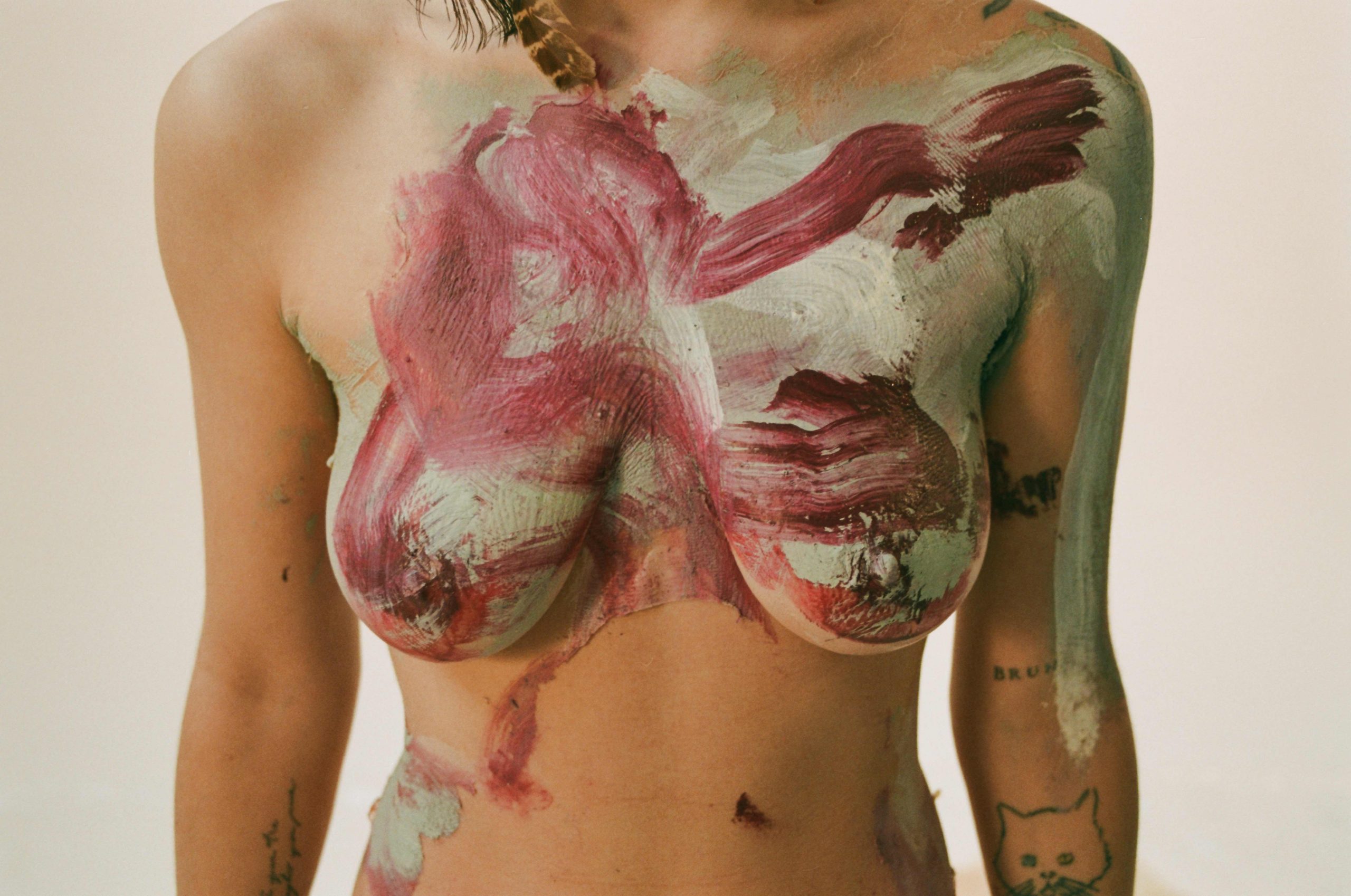
“When I was little, out of necessity, I attended a religious school. Sometimes it happened that the nuns would call my mum worriedly saying that I was drawing naked bodies, erect penises and vulvas. Today I don’t know why I did it, but it amused me because I knew there was nothing wrong with it (…). The body and sexuality have always been constants in my life”.
With deep eyes and a big smile, Alice Capelli (born in 1997) is a visual artist born and raised in Milan.
We meet her in videocall in May 2022 after a curious misunderstanding. It happens in fact that on the day of the appointment, and shortly before the scheduled time, she sends us her home address sure that the meeting would take place in person. At that moment, it becomes clear to us sitting in front of the PC how much physical contact is really a priority for her.
ACRE presents her interview here, a dialogue that allows us to get to know her and approach her world; but, unlike the first time, it happens without misunderstandings because we meet face to face in her home studio in Milan.
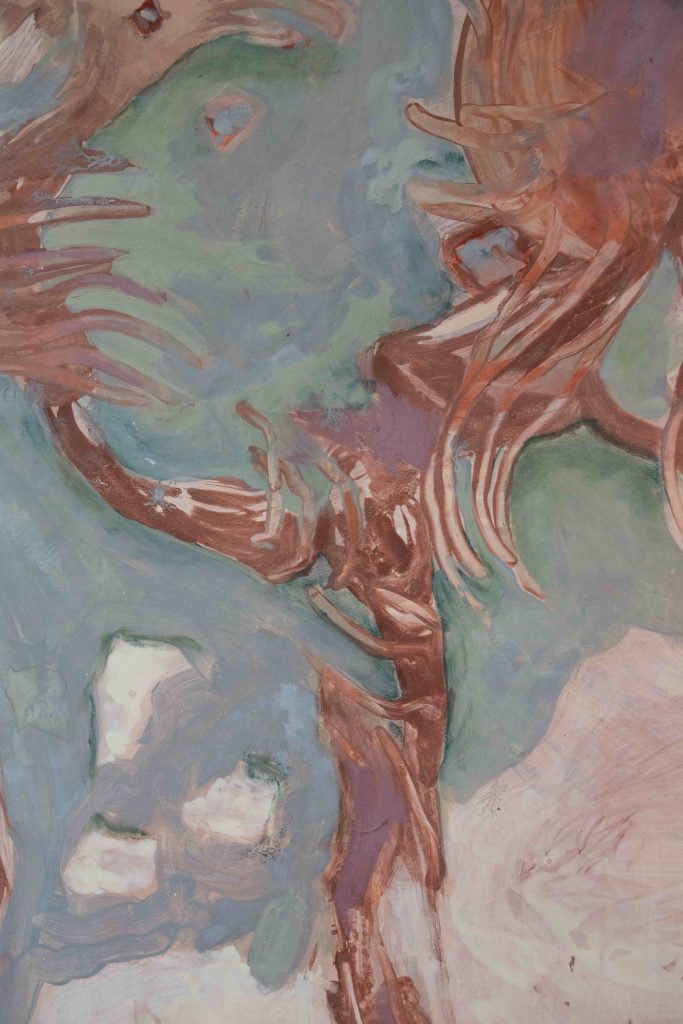
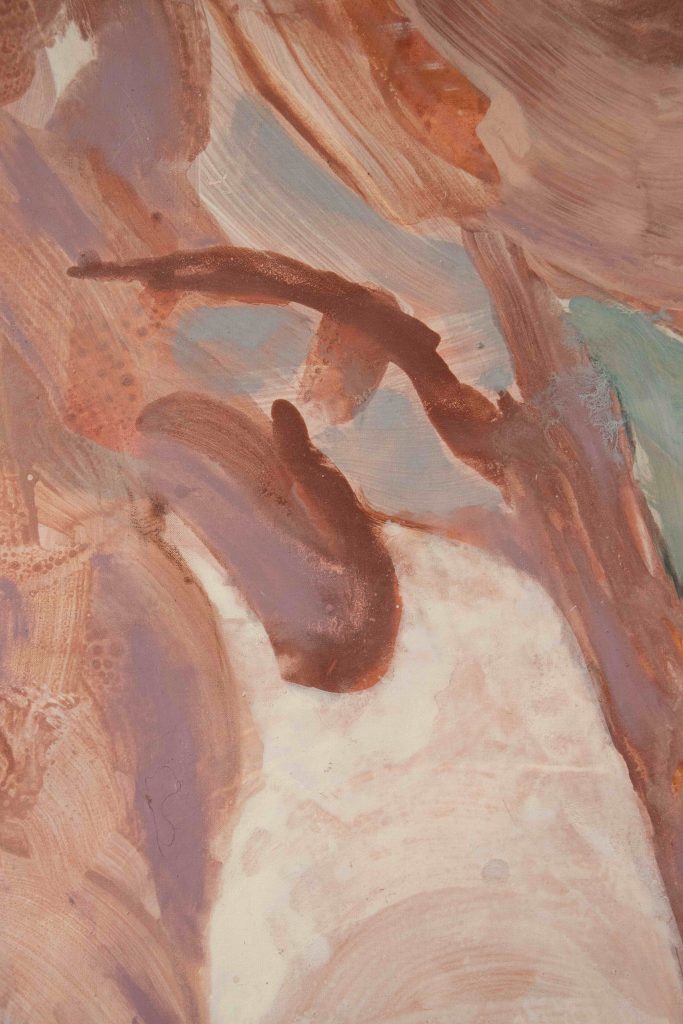
Delicacy and impetuosity, sensuality and rigidity, day and night, are opposites that cohabit in Alice Capelli. “I don’t recognise myself in any pre-established schematism, neither artistically nor personally, so I have difficulty in finding an answer to this question. However, I believe that what identifies me is transparency. The artists generally focus their work around mystery; for me it is different. I do not think my works are immediately legible, but at the same time, I think they are transparent.” Immortalising imprints of bodies, memories of physical contacts and sexual acts, for Alice Capelli, becomes a transparent way of narrating herself and the reality that surrounds her.
Alice’s works derive from a constant investigation of identity. A search that she expresses with a purely pictorial language and that never offers definitive readings: ‘My work is largely introspective, I conceive a process that starts from my body but then, touching on the theme of identity, broadens out to embrace every person’ .
Alice does not consider herself to be an abstract or even a figurative artist, but on a compositional level, although she is not motivated by symbolism, she proposes forms that clearly recall two images: legs and breasts: “I see legs as the means by which one moves and arrives at knowledge; and the breast, which is conventionally linked to motherhood, as the principle of life (…) I also present the latter because since childhood I have experienced it as a weakness. The breast leads me back to discrimination of expression and gender, issues that I have always dealt with and which I advocate a new educational approach to’.
Between Alice and what she acts on, a bodily symbiosis germinates, the evolution of which she can never predict until the end: ‘my works are born from an energy similar to that which is released in a sexual relationship, until the end I never know how it will go’.
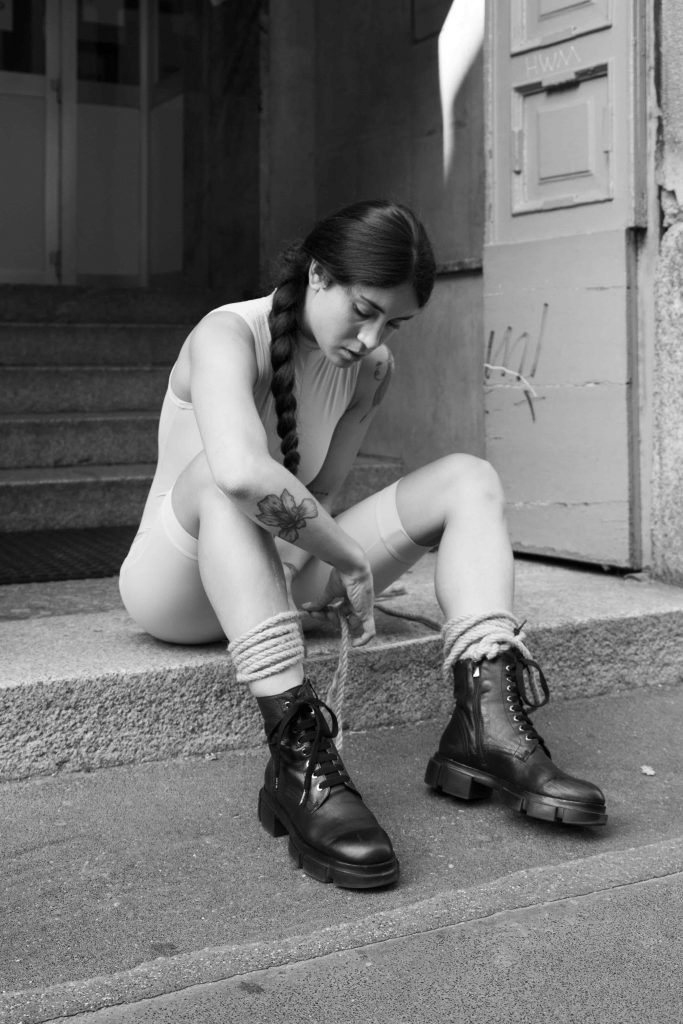
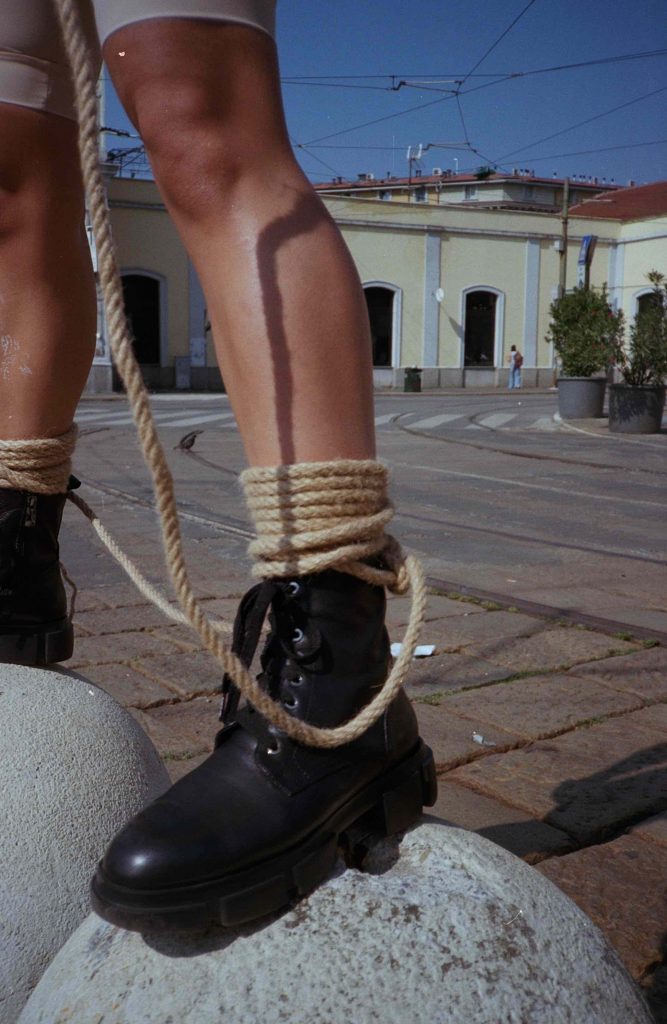
“What I present in my works are remains, yes remains. It is like when, after bedtime, dead skin, sweat and hair are deposited on the sheets”.
Alice does not make the body a poetic issue, she does not embroider fictitious narratives around what she narrates: “I am like that, grounded, I am interested in reality without filters (…) everything in my works refers back to the body; I perceive it as a demonstrative means of one’s own passage. As that which allows one to place oneself in a here and now, but which cannot submit to closed schematisms’.
When she speaks of the breast, she does not look at the symbolism associated with it, but analyses it considering it for what it is: ‘a simple body part, which is used like any other’.
Alice is aware that the verb ‘to use’ and the type of reading she proposes of the body can be misunderstood. This is why she works with girls, children and teenagers to promote the topic in schools: ‘it all starts in childhood; providing a correct education is the first step towards change’.
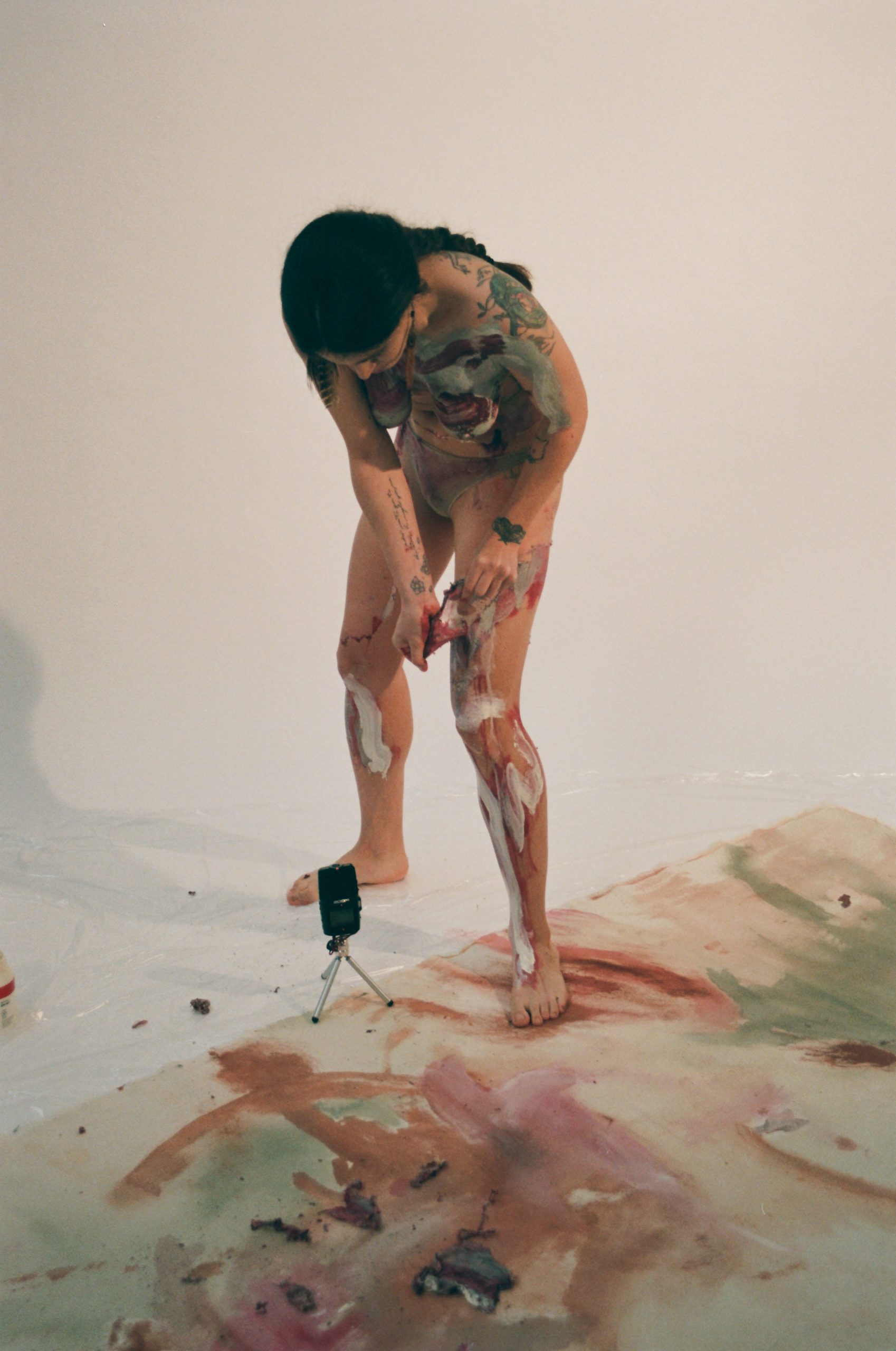
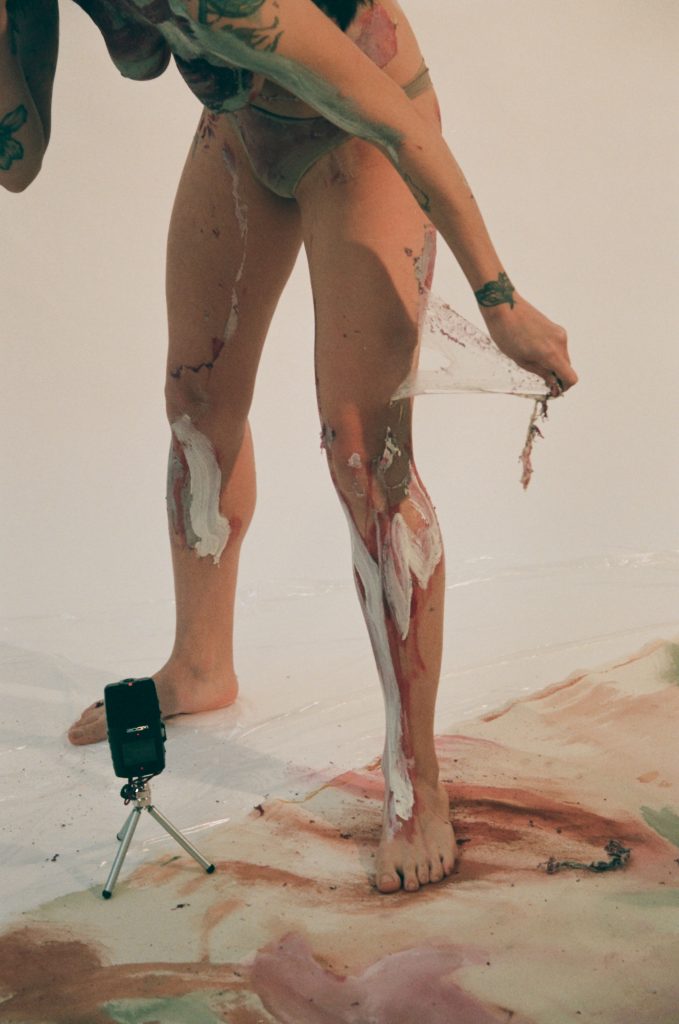
“In the world of institutions, I am often asked why I decide to use my body: ‘in this way, your body comes before your work’ is the frequent accusation against my choice (…).
What’s more, they also criticise the fact that it does not reflect the canons of the market’.
It is here, then, from the prejudice towards the use of the body, that Alice’s will to persevere in her proposal arises.
“I use the body because I consider it to be an expressive medium; I cannot ask it not to appear as such, it is inevitable that physicality and sensuality transpire from my works, but this should not be a problem’.
Alice knows that putting an arm and a breast on the same level is a complex operation because, on a superficial reading, it can seem a narcissistic and self-referential gesture; but she hopes that this democratic conception of hers can become less and less utopian: “I believe that before railing against works that speak of the Body, and with the Body, it is fundamental to analyse the poetics through which it is put into play”.
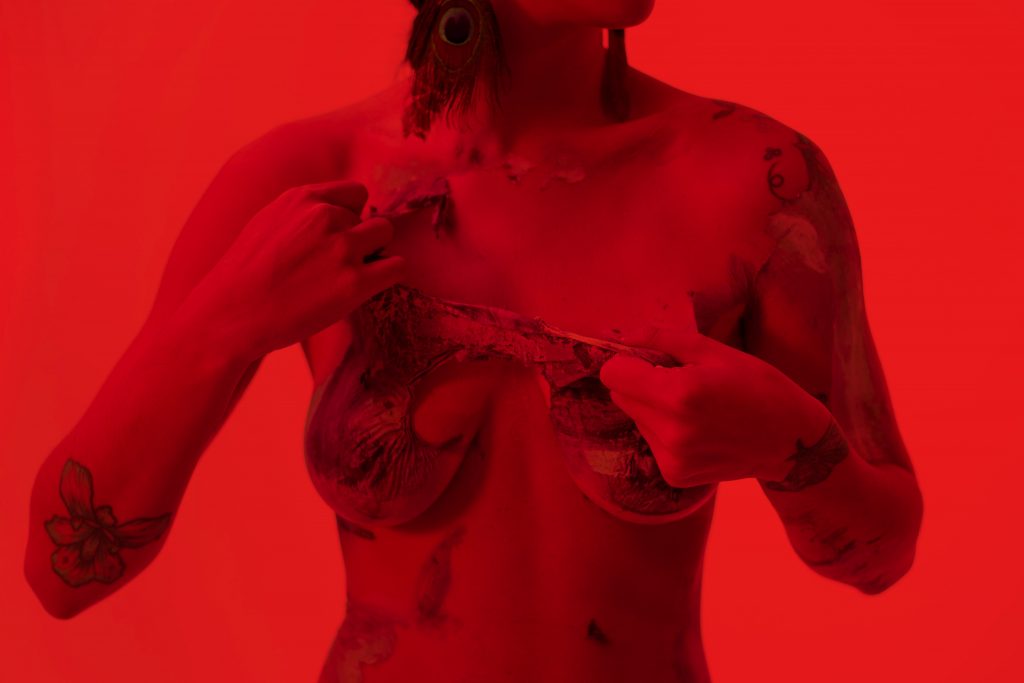
“I do not consider myself an activist but I recognise that my art is politically aligned. There are multiple issues, belonging to our society, that I do not agree with and that result in
in works such as ‘Training Note’: a performance during which I move around the city of Milan, wearing a skin-coloured knitted stocking, marked on my pubis and breasts, and a rope twisted around my ankles”.
A provocative performance that, due to people’s hostile reactions, ‘highlighted how the system within which we live is failing to evolve, and how it is actually tearing itself apart more and more’.
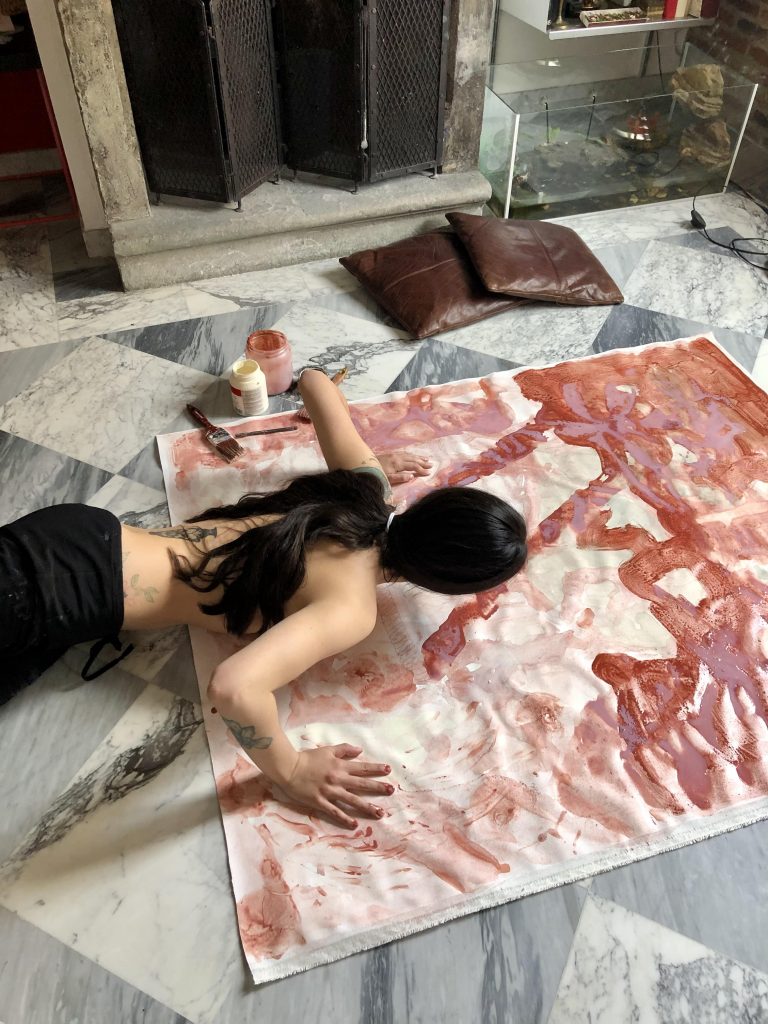
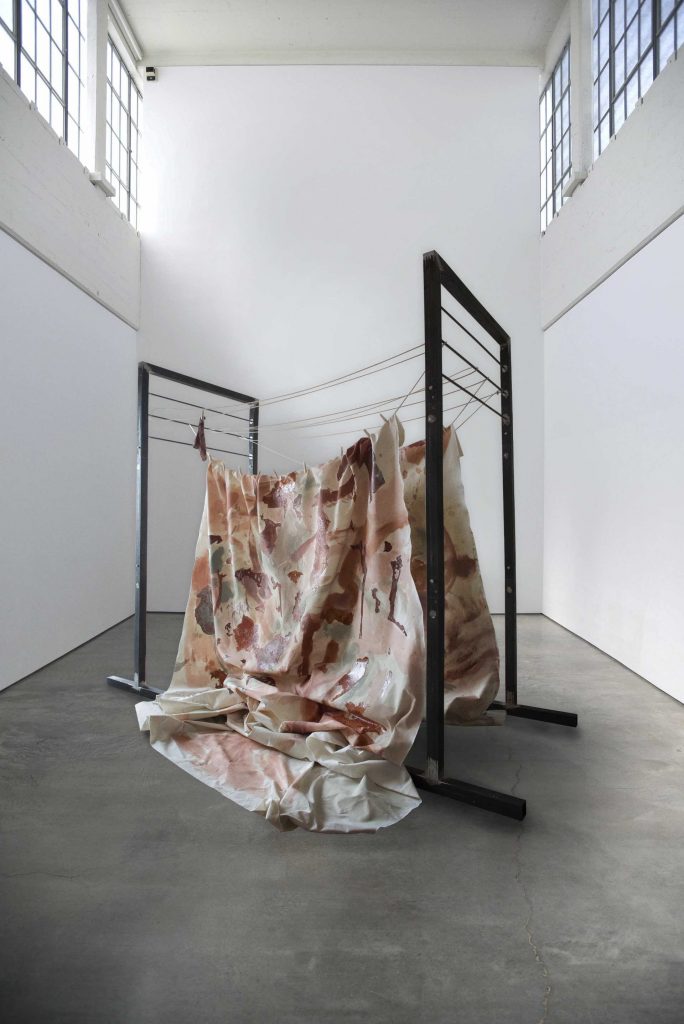
“The line between what is educating and what is raping the viewer of a work is a thin one.
Given the common mentality that considers the explicit display of the body as wrong and vulgar, Alice chooses to express nudity, both physical and mental, through a delicate but evident, open language: “Laying myself bare becomes the cry that urges the need to normalise the body. From childhood they teach what is right and what is not. Today I ask myself: “who can impose rules on identity development and body expression?” (…) my art wants to raise awareness of stereotypes that are still too much elevated to universal law’.
Another fundamental aspect with regard to the viewer of Alice’s works are the titles: ‘Although I do not use proper names but common sayings and phrases, often even overturning the meanings, I consider them essential because they represent the name and surname of what comes to life. The title verbalises their identity, allowing each work to be recognised as an autonomous element’.
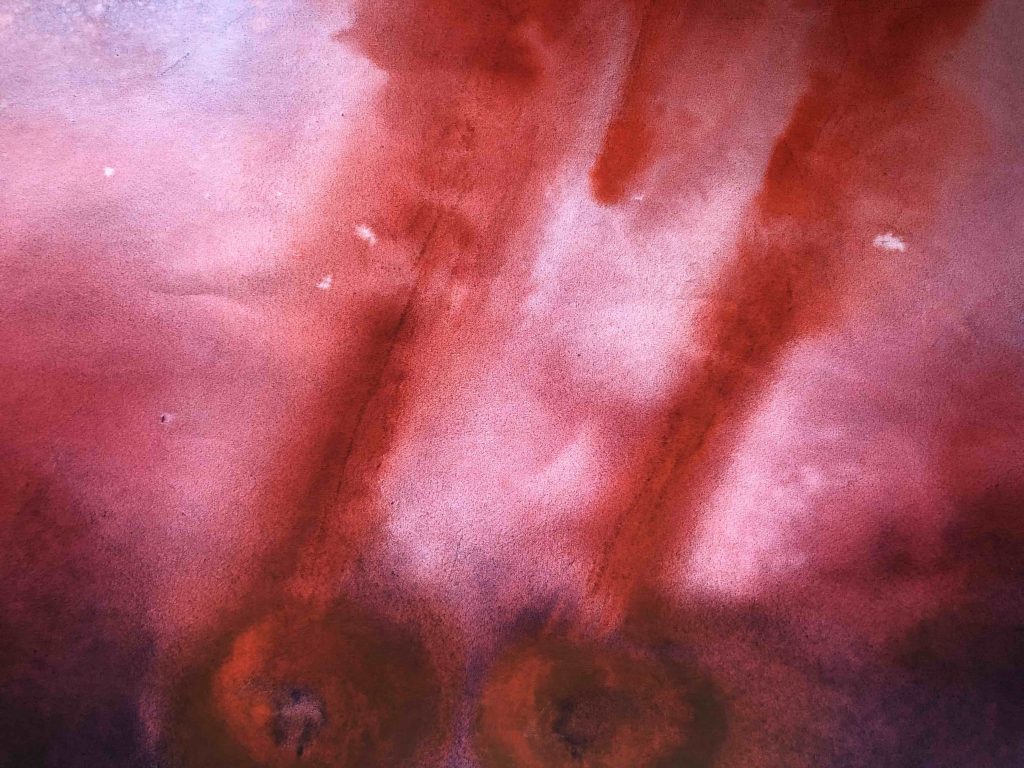
During the first week of September 2022, Alice participated in LUST*ART, a group exhibition with the theme of Queerness, at the Durchgang Galerie in Basel.
“‘Rip off my peel’ is the title of the performance I proposed for the event. Being live created emotional involvement and vividness. Transparency.” Inside the space, the performance revolved around multiple mediums: “Fragments of an acrylic emulsion, which I usually use in my works, gushed from some of the walls and solidified on my naked body, becoming a second skin. It is they, the remnants of the performance that, in dialogue with the painting “If you open me what you find,” allow the process to mature the entire installation.”
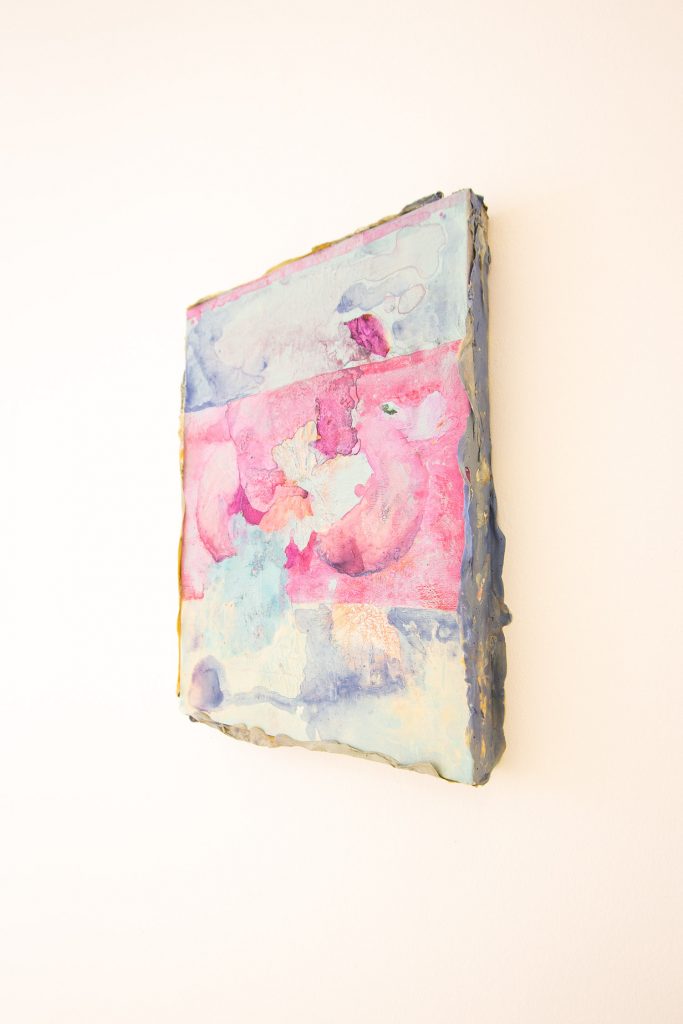
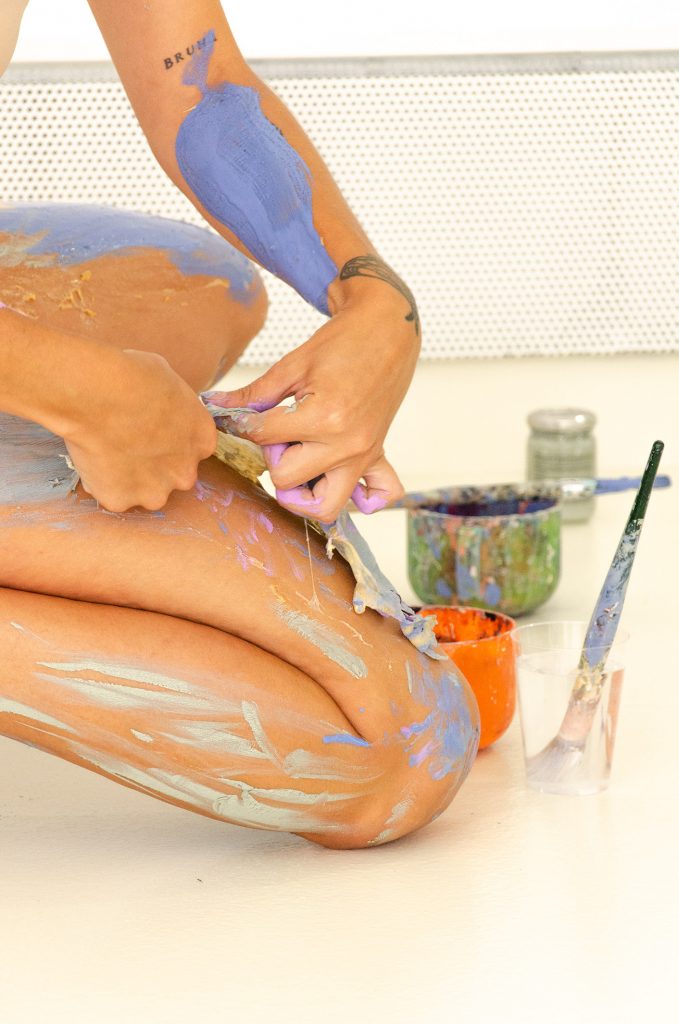
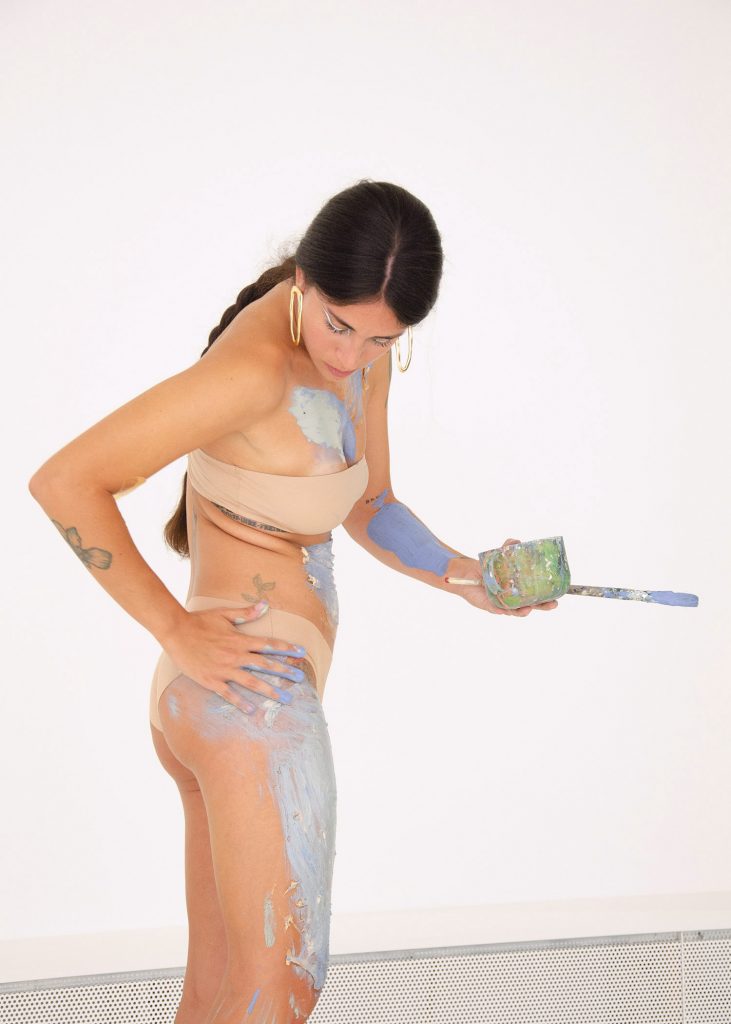
Do you have any artistic references? If so what are they?
“One of my masters is Francesco Gennari with whom I share the conception of the works since, like me, he works introspectively. Carol Rama and Hannah Wilke are two pillars I look to a lot. Pictorially I esteem Schifano from the 1960s, and Campigli. While on the contemporary scene my references are Zoe Williams, Rebecca Ackroyd, Cecily Brown. whose energy and expressive attitude I admire.”
